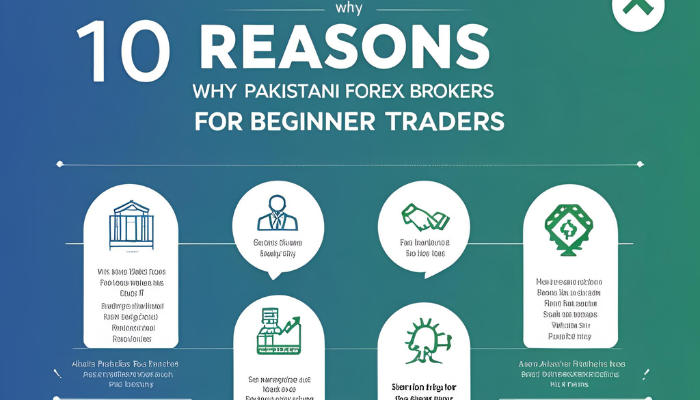Many people have been drawn to trading with the promise of making quick profits in the foreign exchange market. But, despite the potential benefits, a sizable portion of forex traders fail to take the privilege of success. Anyone attempting to enter the complex world of forex trading must have a thorough understanding of the major mistakes that make trading unsuccessful. This article will examine five major factors that contribute to the frequent failure of forex traders. Additionally, we are about to discuss insightful advice on how to avoid these traps.
Insufficient Training and Information
Lack of appropriate education and market expertise is one of the primary causes of many forex traders’ failures. When it comes to trading, lacking a firm grasp of technical analysis, risk management, and fundamentals is a formula for failure. A thorough understanding of market trends, economic data, and global events that affect currency values is a recipe for successful trading.
It takes a lot of time and effort to become a successful trader in the forex market. Choosing stocks or making real estate investments are not comparable to forex trading. New traders frequently enter it without research and end up losing money. They don’t know how to read charts, comprehend economic data, or properly manage risk. Without proper training and information, there are more chances of losing money than making it.
How to Avoid?
Cram knowledge before getting started with live trading as a way to avoid this mistake. Make the time to educate yourself about the forex market. More so, learn trading methods and risk control procedures. Now, you may wonder how to gain maximum knowledge for the best results. You can use online courses, educational materials, and demo accounts offered by trustworthy brokers for the best understanding.
Emotional Trading
Forex trading is heavily influenced by emotions. Greed, anxiety, and impatience can cause poor judgment and impulsive decisions. Departing from a laid out trading plan and chasing losses, both of these contribute to failure. Depression and frustration are frequent outcomes of emotional trading.
The unrealistic expectation is also a part of emotional trading. Due to their imaginary expectations, many forex traders lose money. They hope to swiftly make a large sum of money without putting in the required time and work.
It’s not possible to become wealthy through forex trading overnight. Developing into a successful trader involves time, effort, and practice. Realistic expectations that you will be both profitable and unsuccessful trades are essential.
How to Avoid?
Develop a sound trading strategy that defines entry and exit points. Additionally, do a careful analysis based on proper research. Remain committed to your goals. When you are making decisions abstain from emotional impulses. You need to keep a trading notebook to help you spot patterns and make adjustments. You can note your thoughts and feelings as you make transactions in the notebook.
More so, realistic expectations about what you can accomplish in forex trading are important. In addition, you need to put more effort into creating a trading strategy. Focus on long-term objectives rather than on trying to make immediate money.
Inadequate Risk Management
The key to profitable trading is effective risk management. The fact is many inexperienced traders frequently ignore it. Failure to adopt effective risk management techniques might result in large losses. It can lead to completely depleted trading accounts. If you don’t have a good risk management strategy, forex trading can cause you to lose a lot of money very rapidly. Overleveraging is a trap that many traders fall into. It includes taking on more risk than they can bear to lose on a single trade. It can be through the use of large leverage or trading without a stop-loss order.
Overtrading happens when traders place too many transactions or place them too often, which results in tiredness and affects decision power.
Overtrading may lead to missed chances, higher transaction fees, and losses. To prevent making impulsive trades, it is crucial to take breaks and step away from the market for some time. Avoid trading when you are exhausted and preoccupied.
How to Avoid?
If you want to prevent this error, you must have a detailed risk management strategy in place. Establish explicit standards for position sizing and leverage use after evaluating your level of risk tolerance. Take profit and stop-loss orders can be used to control prospective gains and losses. Never put more than a modest portion of your trading cash in a single transaction. A trader shouldn’t typically invest more than 2% of their account balance on a single transaction.
Effective risk management can help you avoid losing more money. More so, you can afford and improve your chances of success.
No Patience or Discipline
Both patience and discipline are essential for profitable forex trading. Many traders fall short because they lack the perseverance to watch for setups. It’s simple to become engrossed in the market’s enthusiasm. Many traders make impulsive trade decisions based more on feelings than on reason. They lack a high possibility of happening or the self-control to constantly stick to their trading strategy. Losses may result from entering transactions too quickly or prematurely.
How to Avoid?
Develop discipline by sticking to a schedule. Follow a disciplined trading strategy. Refrain from overtrading and wait patiently for the perfect opportunities to develop that are consistent with your trading plan.
Even when things don’t go as planned, you must create a sound trading technique and follow it. Your plan should outline your trading objectives, risk management strategy, technical analysis, and entry and exit tactics. Once you have made a plan, follow it. Don’t let feelings influence your decisions.
Ignoring Technical Analysis and Fundamental Analysis
The forex market can be understood using both fundamental and technical analysis. Poor decision-making can result from neglecting one or both of these two important analysis techniques. Without completing adequate analysis, you are at risk of more losses. You cannot rely on intuition or advice from other sources as it might put you at risk.
How to Avoid?
Develop a trading strategy that includes both fundamental and technical analysis. Keep an eye on changes in currency rates caused by economic factors, geopolitical developments, and central bank policies. Use technical analysis to find trends, patterns, and possible entry and exit points.




